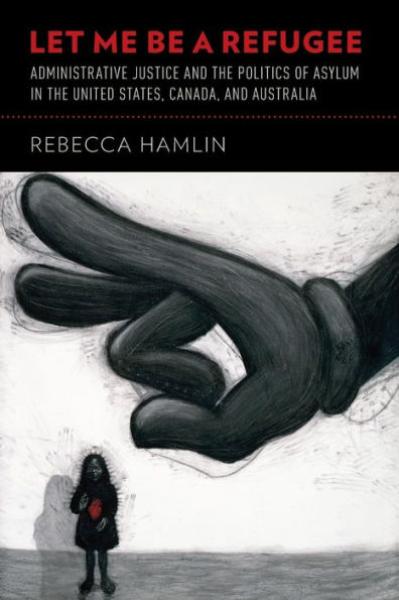Description
International law provides states with a common definition of a "refugee" as well as guidelines outlining how asylum claims should be decided. Yet even across nations with many commonalities, the processes of determining refugee status look strikingly different. This book compares the refugee status determination (RSD) regimes of three popular asylum seeker destinations: the United States, Canada, and Australia. Though they exhibit similarly high levels of political resistance to accepting asylum seekers, refugees access three very different systems-none of which are totally restrictive or expansive-once across their borders. These differences are significant both in terms of asylum seekers' experience of the process and in terms of their likelihood of being designated as refugees. Based on a multi-method analysis of all three countries, including a year of fieldwork with in-depth interviews of policy-makers and asylum-seeker advocates, observations of refugee status determination hearings, and a large-scale case analysis, Rebecca Hamlin finds that cross-national differences have less to do with political debates over admission and border control policy than with how insulated administrative decision-making is from either political interference or judicial review. Administrative justice is conceptualized and organized differently in every state, and so states vary in how they draw the line between refugee and non-refugee.
"This book compares the refugee status determination (RSD) regimes of three popular asylum seeker destinations. Despite similarly high levels of political resistance to accepting asylum seekers, because administrative justice is conceptualized and organized differently in every state, they vary in how they draw the line between refugee and non-refugee"--
"This book makes an important and original contribution to the scholarly literature, especially the literature on refugees but also the broader literature on the administrative state. It shows how consequential different institutional arrangements and legal/political cultures can be. I know of no other research that has opened up the black box of the state to examine the inner dynamics of the process of refugee determination. Hamlin does so in a way that is persuasive and illuminating. Anyone who works on refugees, whether in political science or law, will want to read this book." --Joseph H. Carens, University of Toronto
"Hamlin gives us a highly original account of the politics of asylum-seeking, focusing on constitutional law and administrative practice in the U.S., Canada, and Australia. An excellent piece of scholarship and a timely book, Let Me Be a Refugee will quickly become a classic and a must-read for anyone interested in refugee policy." --James F. Hollifield, Tower Center, SMU
"This book compares the refugee status determination (RSD) regimes of three popular asylum seeker destinations. Despite similarly high levels of political resistance to accepting asylum seekers, because administrative justice is conceptualized and organized differently in every state, they vary in how they draw the line between refugee and non-refugee"--
"This book makes an important and original contribution to the scholarly literature, especially the literature on refugees but also the broader literature on the administrative state. It shows how consequential different institutional arrangements and legal/political cultures can be. I know of no other research that has opened up the black box of the state to examine the inner dynamics of the process of refugee determination. Hamlin does so in a way that is persuasive and illuminating. Anyone who works on refugees, whether in political science or law, will want to read this book." --Joseph H. Carens, University of Toronto
"Hamlin gives us a highly original account of the politics of asylum-seeking, focusing on constitutional law and administrative practice in the U.S., Canada, and Australia. An excellent piece of scholarship and a timely book, Let Me Be a Refugee will quickly become a classic and a must-read for anyone interested in refugee policy." --James F. Hollifield, Tower Center, SMU
Last updated on
Product Details
- Oxford University Press, Brand
- Sep 16, 2014 Pub Date:
- 0199373310 ISBN-10:
- 9780199373314 ISBN-13:
- 229 Pages
- 10.2 in * 6.1 in * 0.7 in Dimensions:
- 1 lb Weight:




